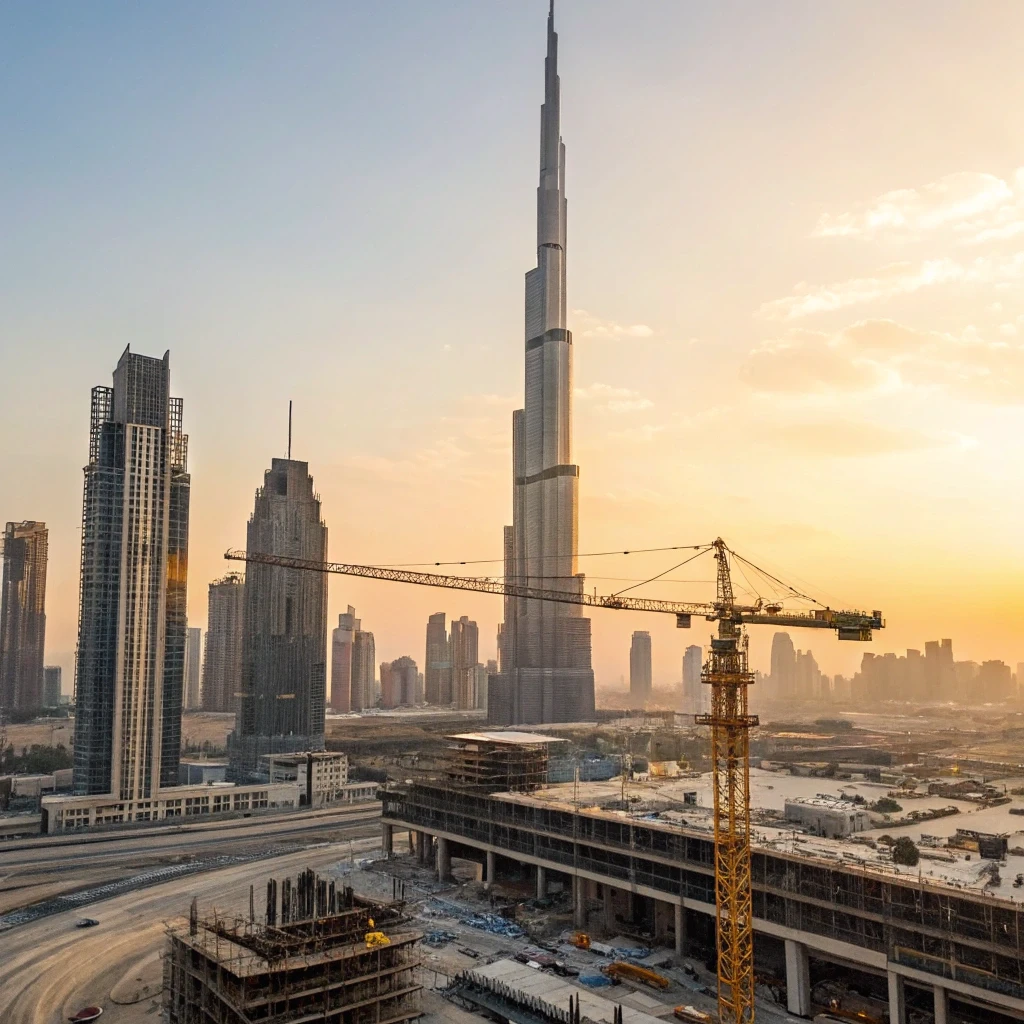Sevenx Properties in Dubai Real Estate Agency
Dubai vs. Abu Dhabi Real Estate: Which Is Better for Investors?

Why Compare Dubai and Abu Dhabi?
Dubai and Abu Dhabi are the two powerhouses of the UAE real estate market. While both cities offer freehold property ownership, strong rental demand, and attractive investor policies, they cater to different types of buyers.
Dubai attracts global investors seeking high yields and liquidity, while Abu Dhabi offers stability, long-term growth, and family-focused communities. Understanding their differences in 2026 helps investors align property purchases with their financial goals.
Dubai Real Estate – The Global Investment Hub
Dubai is known for its fast-paced market and global appeal. It continues to rank among the top cities for foreign direct investment in property.
Key Highlights:
High Liquidity: Dubai’s property market sees higher transaction volumes, making it easier to buy and sell.
Rental Yields: Dubai offers some of the highest yields in the world, averaging 7–10%, especially in communities like Dubai Marina, JVC, and Business Bay.
Diverse Inventory: From affordable apartments to luxury penthouses, investors have more variety.
Tourism & Short-Term Rentals: Strong tourism supports the booming holiday-home sector.
Best for: Investors seeking quick returns, strong cash flow, and international demand.
Abu Dhabi Real Estate – Stability and Long-Term Growth
Abu Dhabi’s market moves slower but offers solid fundamentals and a more regulated environment. It appeals strongly to end-users and long-term investors.
Key Highlights:
Moderate Yields: Rental yields average 5–7%, slightly lower than Dubai.
Stability: Prices fluctuate less compared to Dubai, reducing risk.
Community Living: Family-friendly areas like Saadiyat Island and Yas Island offer world-class schools and cultural hubs.
Government Incentives: Abu Dhabi provides attractive payment plans and reduced transaction fees in some zones.
Best for: Investors prioritizing stability, family living, and long-term appreciation.
Regulatory & Ownership Differences
Freehold Zones: Dubai offers more freehold areas compared to Abu Dhabi, making it friendlier to foreign buyers.
Golden Visa Eligibility: Both cities allow property investors to qualify for the Golden Visa (AED 2 million+ threshold).
Transaction Costs: Dubai generally has slightly higher service charges, but Abu Dhabi has higher registration fees in some cases.
Lifestyle Differences for Expats
Dubai: International, cosmopolitan, with vibrant nightlife, business hubs, and diverse expat communities. Ideal for professionals, entrepreneurs, and investors in short-term rentals.
Abu Dhabi: Quieter, more traditional, with strong family focus, cultural landmarks (Louvre Abu Dhabi, Saadiyat Cultural District), and steady lifestyle pace.
ROI Comparison in 2026
Dubai: 7–10% rental yields; higher resale activity; better liquidity for short-term investors.
Abu Dhabi: 5–7% yields; lower volatility; better suited for patient investors who prefer capital preservation.
Which City Should You Choose?
Choose Dubai if: You want global exposure, strong cash flow, and the option to resell quickly.
Choose Abu Dhabi if: You prefer long-term stability, family-oriented living, and cultural richness.
Balanced Strategy: Many investors choose Dubai for high-yield apartments and Abu Dhabi for villas or long-term homes, creating a balanced UAE portfolio.
FAQs
1. Which city gives higher rental yields, Dubai or Abu Dhabi?
Dubai typically offers 7–10% rental yields, while Abu Dhabi averages 5–7%, making Dubai stronger for cash-flow investors.
2. Is property ownership open to foreigners in both cities?
Yes. Both allow foreigners to buy in designated freehold zones, though Dubai offers more variety and availability.
3. Which market is safer during downturns?
Abu Dhabi tends to be less volatile, while Dubai experiences faster ups and downs due to its international exposure.
4. Do both cities offer the Golden Visa for investors?
Yes. In both Dubai and Abu Dhabi, properties worth AED 2 million or more make investors eligible for a 10-year Golden Visa.
5. Which city is better for short-term rentals?
Dubai. With millions of tourists annually, areas like Dubai Marina, Downtown, and Palm Jumeirah perform exceptionally in the holiday-home market.
6. Are transaction fees higher in Abu Dhabi?
Abu Dhabi sometimes charges higher registration fees, while Dubai tends to have higher service charges for premium communities.
7. Which is better for families?
Abu Dhabi offers a calmer, more family-friendly environment, while Dubai is ideal for expat professionals and dynamic lifestyles.
8. Is it better to buy an apartment in Dubai or a villa in Abu Dhabi?
Apartments in Dubai offer strong yields and liquidity, while Abu Dhabi villas provide long-term appreciation and lifestyle value.
Frequently Asked Questions
A refundable security deposit of 5% of the annual rent will be expected to be paid on Landlords acceptance of Tenants offer to lease. This security deposit which is held by the Landlord and returned at the end of the term dependant on the condition of the property. You will need to pay your rent up front for the period of lease in the way of post-dated cheques depending on the terms of your agreement. Other costs will include 5% of the annual rent payable to the agency for commission plus 5% VAT. You will also need to budget for the deposits required to be paid for connecting your utilities such as water, electricity, televisions etc. 5% VAT is payable on services provided and will be incurred on utility charges.
A refundable security deposit of 5% of the annual rent will be expected to be paid on Landlords acceptance of Tenants offer to lease. This security deposit which is held by the Landlord and returned at the end of the term dependant on the condition of the property. You will need to pay your rent up front for the period of lease in the way of post-dated cheques depending on the terms of your agreement. Other costs will include 5% of the annual rent payable to the agency for commission plus 5% VAT. You will also need to budget for the deposits required to be paid for connecting your utilities such as water, electricity, televisions etc. 5% VAT is payable on services provided and will be incurred on utility charges.
To rent a property in Dubai, you generally need the following documents:
- A valid Emirates ID or passport for identification
- A residency visa
- A tenancy contract is a legal agreement between the tenant and the landlord outlining the terms and conditions of the rental agreement.
- A security deposit, which is typically equivalent to one month's rent
- Cheques or proof of payment for rent and any other fees associated with the rental agreement
- Ejari
In Dubai, the responsibility for paying service fees for a property is determined by the rental agreement between the tenant and the landlord.
In most cases, the landlord is responsible for paying the service fees. However, in some cases, the rental agreement may state that the tenant is responsible for paying a portion or all of the service fees. This would depend on the specific terms of the rental agreement.
The length of the contract can vary, but it is typically for a minimum of one year. However, landlords and tenants can agree to a longer-term contract if they want.






